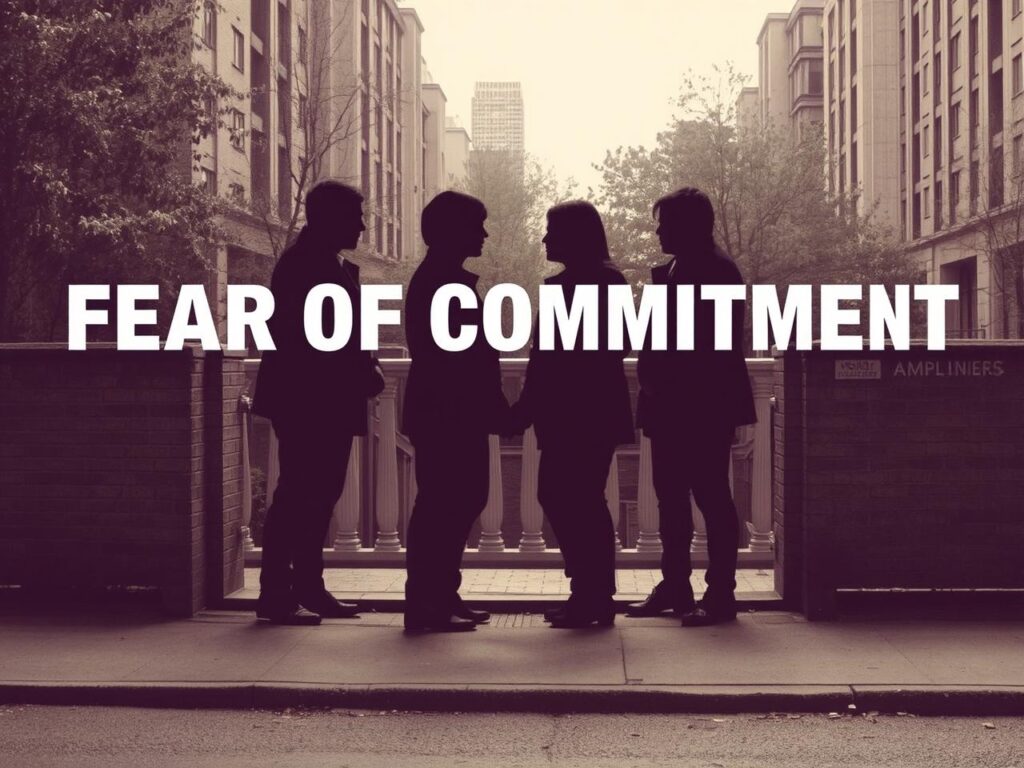7 Reasons Attractive People Can’t Find A Partner
Modern society often imposes unrealistic standards on relationships, influenced by media portrayals and social expectations. Romantic comedies, social media, and other forms of popular culture frequently present idealized versions of love and partnerships. This constant exposure to perfected relationship narratives can lead individuals to feel inadequate or dissatisfied with their own romantic experiences.
The pressure to meet these unrealistic standards can manifest in two primary ways. First, people may compare their relationships to idealized versions, potentially causing unnecessary strain between partners. Second, individuals may strive to be flawless partners themselves, setting unrealistically high expectations for their own behavior and performance within the relationship.
These unrealistic standards can have negative psychological effects, including anxiety, self-doubt, and emotional exhaustion. It is important to recognize that no relationship is without flaws, and pursuing perfection can be detrimental to mental and emotional well-being. A more constructive approach involves focusing on building healthy, authentic connections based on mutual respect, understanding, and acceptance.
By cultivating realistic expectations for oneself and one’s partner, individuals can create a more sustainable and fulfilling foundation for their relationships. Awareness of these societal pressures and their potential impact is crucial for developing and maintaining healthy relationships in the modern world.
Key Takeaways
- Unrealistic standards can lead to dissatisfaction and disappointment in relationships.
- Fear of commitment can prevent individuals from fully investing in a relationship and experiencing its potential.
- Lack of authentic connections can result in shallow and unfulfilling relationships.
- Overemphasis on physical appearance can overshadow important qualities and values in a partner.
- Self-sabotage can hinder the development of healthy and meaningful relationships.
Fear of Commitment

Root Causes of the Fear of Commitment
One of the main reasons for the fear of commitment is the fear of getting hurt. Past experiences of heartbreak or betrayal can leave deep emotional scars that make it difficult to trust and open up to a new partner. Additionally, some individuals may have a fear of losing their independence and freedom by committing to a long-term relationship.
Overcoming the Fear of Commitment
Overcoming the fear of commitment requires introspection and self-awareness. It’s important to identify the root causes of this fear and work through any underlying issues that may be contributing to it. Building trust and communication with a partner can also help alleviate fears and create a sense of security in the relationship.
The Importance of Addressing the Fear of Commitment
Ultimately, addressing the fear of commitment is essential for building healthy and fulfilling relationships. By confronting and overcoming this fear, individuals can develop deeper connections with their partners and create a more secure and loving relationship.
Lack of Authentic Connections

In today’s fast-paced world, it’s easy to fall into the trap of superficial connections and shallow interactions. With the rise of social media and dating apps, many people have become accustomed to forming relationships based on surface-level attributes rather than genuine connections. This lack of authenticity can lead to feelings of emptiness and dissatisfaction in our relationships.
Authentic connections are built on mutual respect, understanding, and vulnerability. They require open and honest communication, as well as a willingness to be emotionally present with our partners. However, in a society that often values quantity over quality, it can be challenging to prioritize authentic connections in our relationships.
It’s important to recognize the importance of authenticity in our relationships and make a conscious effort to cultivate genuine connections with our partners. This may involve setting boundaries with technology, prioritizing face-to-face interactions, and being vulnerable with our emotions. By fostering authentic connections, we can create more meaningful and fulfilling relationships that bring joy and fulfillment into our lives.
Overemphasis on Physical Appearance
In today’s image-obsessed culture, there is an overemphasis on physical appearance in relationships. From airbrushed magazine covers to filtered social media posts, we are constantly bombarded with images of unattainable beauty standards. This can lead to feelings of insecurity and self-doubt, as we compare ourselves to these unrealistic ideals.
The pressure to conform to these beauty standards can also impact our relationships. We may feel the need to constantly strive for physical perfection in order to feel worthy of love and affection. This can create a toxic cycle of self-criticism and comparison that erodes our self-esteem and confidence.
It’s important to challenge these unrealistic beauty standards and prioritize inner qualities over external appearances in our relationships. True beauty lies in authenticity, kindness, and compassion, not in airbrushed perfection. By shifting the focus away from physical appearance and towards emotional connection and compatibility, we can create more meaningful and fulfilling relationships.
Self-Sabotage
Self-sabotage is a common issue that can negatively impact our relationships. It often stems from deep-seated insecurities or fears that manifest in destructive behaviors that undermine the success of our relationships. This can include pushing away a loving partner, creating unnecessary drama, or sabotaging opportunities for intimacy and connection.
Self-sabotage often occurs as a result of unresolved emotional wounds or negative beliefs about ourselves. These beliefs can lead us to engage in behaviors that reinforce our fears and insecurities, ultimately sabotaging the potential for a healthy and fulfilling relationship. Overcoming self-sabotage requires introspection and self-awareness.
It’s important to identify the underlying beliefs and fears that are driving these destructive behaviors and work towards healing and self-acceptance. Building self-esteem and cultivating a positive self-image can also help mitigate the urge to engage in self-sabotaging behaviors.
Fear of Rejection

The fear of rejection is a powerful force that can hinder our ability to form meaningful connections with others. This fear often stems from past experiences of rejection or abandonment, which can leave deep emotional scars that make it difficult to trust and open up to new relationships. The fear of rejection can manifest in various ways, such as avoiding vulnerability, seeking constant validation from others, or preemptively ending relationships before they have a chance to develop.
These behaviors are often driven by a deep-seated fear of being rejected or abandoned by others. Overcoming the fear of rejection requires courage and vulnerability. It’s important to recognize that rejection is a natural part of life and does not define our worth as individuals.
Building self-confidence and resilience can help mitigate the fear of rejection and create space for more authentic connections with others.
External Pressures
External pressures from family, friends, and society at large can also impact our relationships in significant ways. These pressures may come in the form of expectations about when we should settle down, who we should date, or what our relationships should look like. These external influences can create unnecessary stress and tension in our relationships as we try to navigate conflicting expectations.
It’s important to establish boundaries with external pressures and prioritize our own needs and desires in our relationships. This may involve having open and honest conversations with loved ones about our boundaries and expectations for our relationships. By asserting ourselves in this way, we can create space for more authentic and fulfilling connections with our partners.
In conclusion, external pressures can have a profound impact on our relationships. It’s important to be mindful of these influences and work towards establishing healthy boundaries that prioritize our own well-being and happiness in our relationships. By doing so, we can create more fulfilling and sustainable connections with our partners.
FAQs
What are some reasons why attractive people can’t find a partner?
Some reasons why attractive people may struggle to find a partner include having high standards, being too focused on their appearance, lacking confidence, and being perceived as intimidating.
Do attractive people have higher standards when it comes to finding a partner?
Research suggests that attractive people may have higher standards when it comes to choosing a partner, which can make it more difficult for them to find a suitable match.
Can being too focused on appearance hinder attractive people from finding a partner?
Yes, being overly focused on appearance can hinder attractive people from finding a partner as it may lead to shallow connections and a lack of depth in relationships.
Is lack of confidence a factor in why attractive people struggle to find a partner?
Lack of confidence can be a factor in why attractive people struggle to find a partner, as it can affect their ability to approach potential partners and form meaningful connections.
Are attractive people perceived as intimidating, making it harder for them to find a partner?
Yes, some attractive people may be perceived as intimidating, which can make it harder for them to find a partner as others may feel insecure or hesitant to approach them.
Do attractive people face societal pressure to be in a relationship?
Yes, attractive people may face societal pressure to be in a relationship, which can add to the challenges they face in finding a partner and may lead to feelings of inadequacy or frustration.
Can personality traits play a role in why attractive people struggle to find a partner?
Yes, certain personality traits such as narcissism or a sense of entitlement can hinder attractive people from finding a partner, as these traits can be off-putting to potential partners.








GIPHY App Key not set. Please check settings